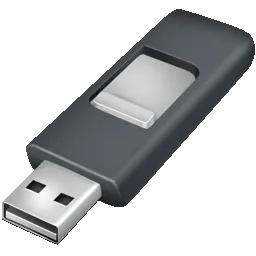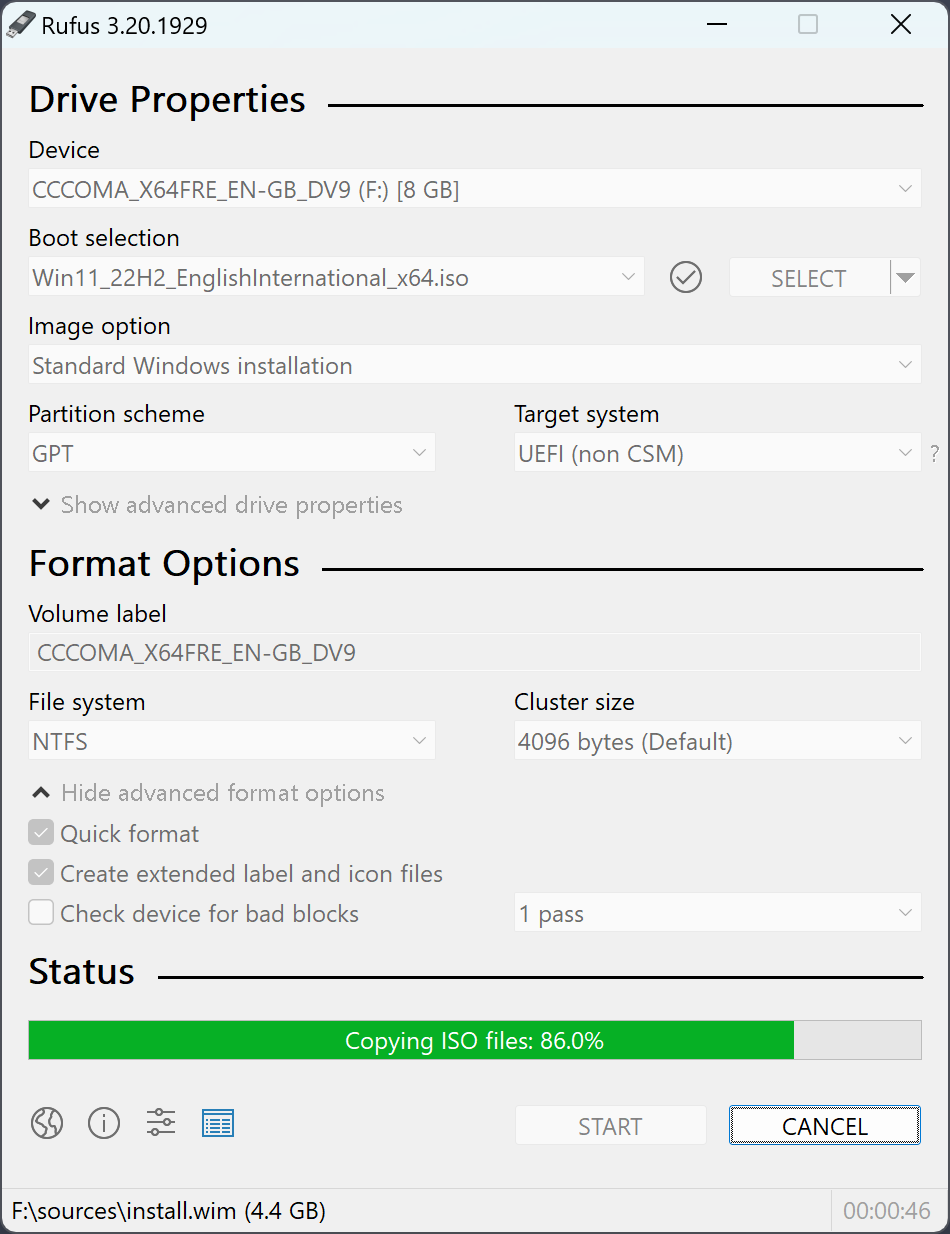Rufus 4.12 Build 2314 – Final

Rufus is a small utility that helps format and create bootable USB flash drives, such as USB keys/pendrives, memory sticks, etc. It is significantly faster than similar utilities and it’s open source and free. All versions of Rufus allow the creation of a bootable USB from an ISO image.
Use Rufus especially for cases to:
- Create USB installation media from bootable ISOs (Windows, Linux, etc.).
- Work on a system that doesn’t have an OS installed.
- Run a low-level utility.
- Flash a BIOS or other firmware from DOS.
Creating an ISO image from a physical disc or from a set of files is very easy to do however, through the use of a CD burning application For example, such as the free CDBurnerXP or ImgBurn.
Rufus Portable is a USB formatting utility which also can create a bootable USB drive using a bootable ISO image. This app requires admin rights. Despite its small size, Rufus provides everything you need!
Rufus is fast. For instance it’s about twice as fast as UNetbootin, Universal USB Installer. Or Windows 7 USB download tool, on the creation of a Windows 7 USB installation drive from an ISO. It is also marginally faster on the creation of Linux bootable USB from ISOs.
Rufus supports a variety of bootable .ISO files, including various Linux distributions and Windows installation .iso files, as well as raw disk image files (including compressed ones). If needed, it will install a bootloader such as SYSLINUX or GRUB onto the flash drive to render it bootable. It also allows the installation of MS-DOS or FreeDOS onto a flash drive as well as the creation of Windows To Go bootable media. It supports formatting flash drives using FAT, FAT32, NTFS, exFAT, UDF and ReFS filesystems.
Supported Languages: Arabic, Bulgarian, Chinese (Simplified), Chinese (Traditional), Croatian, Czech. Danish, Dutch, Estonian, Finnish, French, German, Greek, Hebrew, Hungarian. Indonesian, Italian, Japanese, Korean, Latvian, Lithuanian, Malay, Norwegian, Persian. Polish, Portuguese (Brazil), Portuguese (Portugal), Romanian, Russian, Serbian (Latin). Slovak, Slovenian, Spanish, Swedish, Thai, Turkish, Ukrainian, Vietnamese
Changes in version 4.12:
- Filter out the new Bitdefender VHDs
- Filter disallowed characters in local account names
- Improve Microsoft Dev Drive detection (courtesy of Martin Kuschnik)
- Improve the pre-formatting partition cleanup code
- Improve error reporting on ISO extraction issues
- Improve detection of drives with long hardware IDs (typically SSDs)
- Improve conflicting process reporting
- Improve support for Nutanix and umbrelOS ISOs
- Fix a TOCTOU vulnerability in Fido script execution (CVE-2026-2398, reported by @independent-arg)
- Fix replacement vulnerabilities for diskcopy.dll and oscdimg.exe
- Fix FFU image creation being erroneously invocated, when trying to save an ISO image
- Fix saving of ISO images to paths that contain spaces
- Update UEFI:NTFS and UEFI DBXs to latest
Changes in version 4.11:
- Add a cheat mode to toggle between Light and Dark mode.
- Improve WUE option text relating to the CA 2023 option.
- Update Linux SBAT / Microsoft SVN Secure Boot revocation values to latest.
- Fix some GRUB/Syslinux download dialogs showing only the ‘Close’ button.
- Fix an assert being triggered when using the WUE CA 2023 option on its own.
- Fix an application crash on systems that have a failed dynamic disk.
Changes in version 4.10:
- Add Dark Mode support (courtesy of @ozone10)
- Add support for creating Windows CA 2023 compatible media (requires a Windows 11 25H2 ISO)
- Add support for saving an existing drive to ISO (UDF only)
- Improve error reporting when saving to VHD/VHDX (with thanks to @Kazkans)
- Fix DBX updates being reported in some timezones, even when there are none
- Fix a situation where no file system can be selected in ISO mode
- Fix a crash when trying to process Windows ISOs with very long paths
Homepage – https://rufus.ie
Supported Operating Systems: Windows 8 or later, 32 or 64 bit doesn’t matter.
Size: 1.85 MB
DOWNLOAD Rufus Installer
DOWNLOAD Rufus Portable
DOWNLOAD Rufus ARM Version
DOWNLOAD Rufus ARM64 Version
Leave a Reply
0 Comments on Rufus 4.12 Build 2314 – Final



 (177 votes, 4.27 out of 5)
(177 votes, 4.27 out of 5)